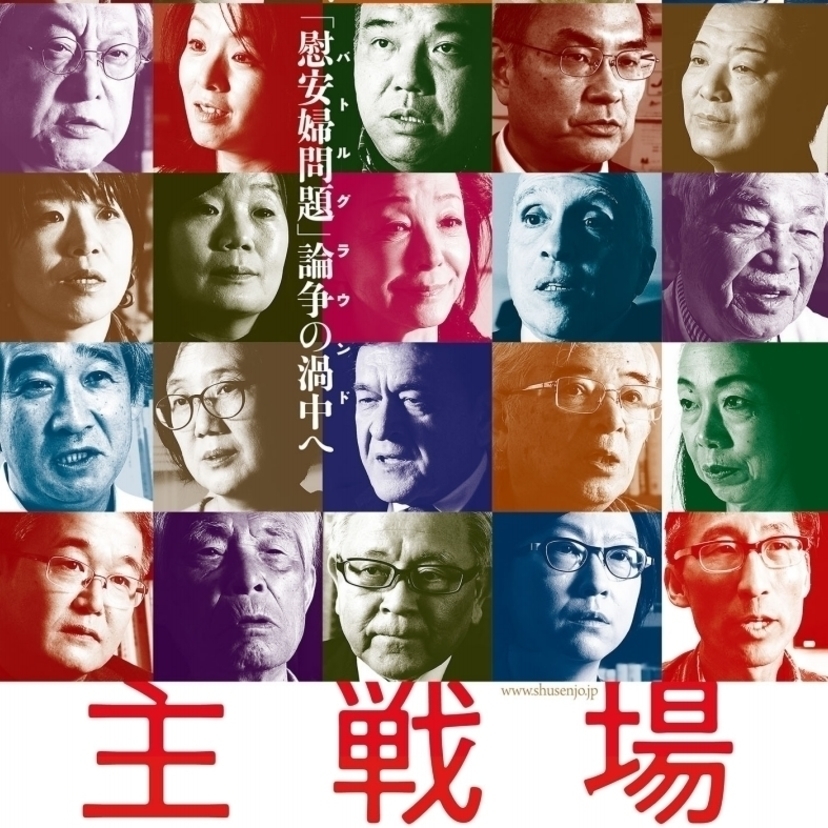The Semarang Incident
Suddenly, the film brings in the Semarang Comfort Station incident in which 35 women including some Dutch women were forced to be comfort women. Japanese military officials in charge of the region at the time immediately investigated after learning of the incident, freed the women and ordered the comfort station closed.
Gilbert claimed the case was evidence that coercive recruitment was illegal at that time. But Yoshimi refuted, saying: "In that incident, victims were white women and Japanese military feared being blamed by the allied forces. I have heard no story about freed Asian women. White women and Asian women must have been treated differently."
Yoshimi's claim was merely an assumption. Dezaki, however, engaged in further conjecture and concluded, "The case in Indonesia is very strong evidence. There might be no evidence that Korean women were coercively recruited, but the Japanese military was reckless enough to force white women to be comfort women at the risk of being blamed internationally, so they must have done the same things to Korean women."
Throughout the film, advocates of the sex-slave theory speak in hypotheticals and reach conclusions by inference. They don't have facts.
It is a fact that the Semarang Comfort Station incident was a criminal case brought by Japanese authorities at that time, just as it would be had it occurred today. One might theorize that there were incidents like this on the Korean Peninsula or other places. But this incident provided no evidence that any Korean women were coercively recruited by the military as a matter of official practice.
Totsuka clearly knew this but engaged in the circular argument anyway that "coercive" and the sense of "being deceived" are the same. However, the bottom line is that advocates of the sex-slave theory in the film fail to prove that coercive recruitment by the military ever existed.
Sex Slaves
Those who believe the comfort women were not sex slaves appeared next in the movie. They offered evidence that the "comfort women were well paid and able to save and send money to their families. When their contract came to an end, they were free to go home. They enjoyed shopping. They went to sports events and parties with Japanese soldiers. They were far from sex slaves."
But advocates of the sex-slave theory countered the argument by claiming that, "According to international law today, they were slaves."
Sex-slave advocate Yoshiaki Yoshimi's claim was particularly interesting. He refuted the evidence that the comfort women had time for recreation by using a convoluted reference to American Negro slaves, saying: "I think their daily lives were so hopeless that they couldn't live without such recreation. For example, American Negro slaves gathered and had concerts or dance parties on Saturdays and Sundays. They also went hunting. They were so hopeless that slave owners had to allow them to do so to survive."
He and other sex-slave advocates failed to mention, however, that some Japanese soldiers fell in love with comfort women and married them, and that there were former comfort women who cherished the memory of Japanese soldiers who were their former lovers. The sex-slave advocates in the film instead appear simply to want to disgrace Japanese by all means possible.
Kohki Abe, a member of the faculty of international studies at Meiji Gakuin, then appeared in the film. He claimed that based on international law the comfort women are defined as "sex slaves".
Kohki Abe said, "Slavery is a situation in which someone is utterly under the control of another. Even if the comfort women were able to earn lots of money and go out for pleasure, they were under another's control and had to get permission to do so. Therefore, they were slaves."
If that was true, then today's ordinary salaried workers are all slaves!
If he wanted to make a claim based on international law, the claim should have been either "it is technically possible to define them as slaves according to today's international law," or "all prostitutes throughout history, not only the wartime comfort women serving the Japanese military, would be defined as sex slaves according to international law."
In the end, The Main Battleground of The Comfort Women Issue failed to deepen the argument on the comfort women because Dezaki did not bring together experts from both sides to discuss the issue and he approached the issue with bias and very shallow knowledge in the first place,



